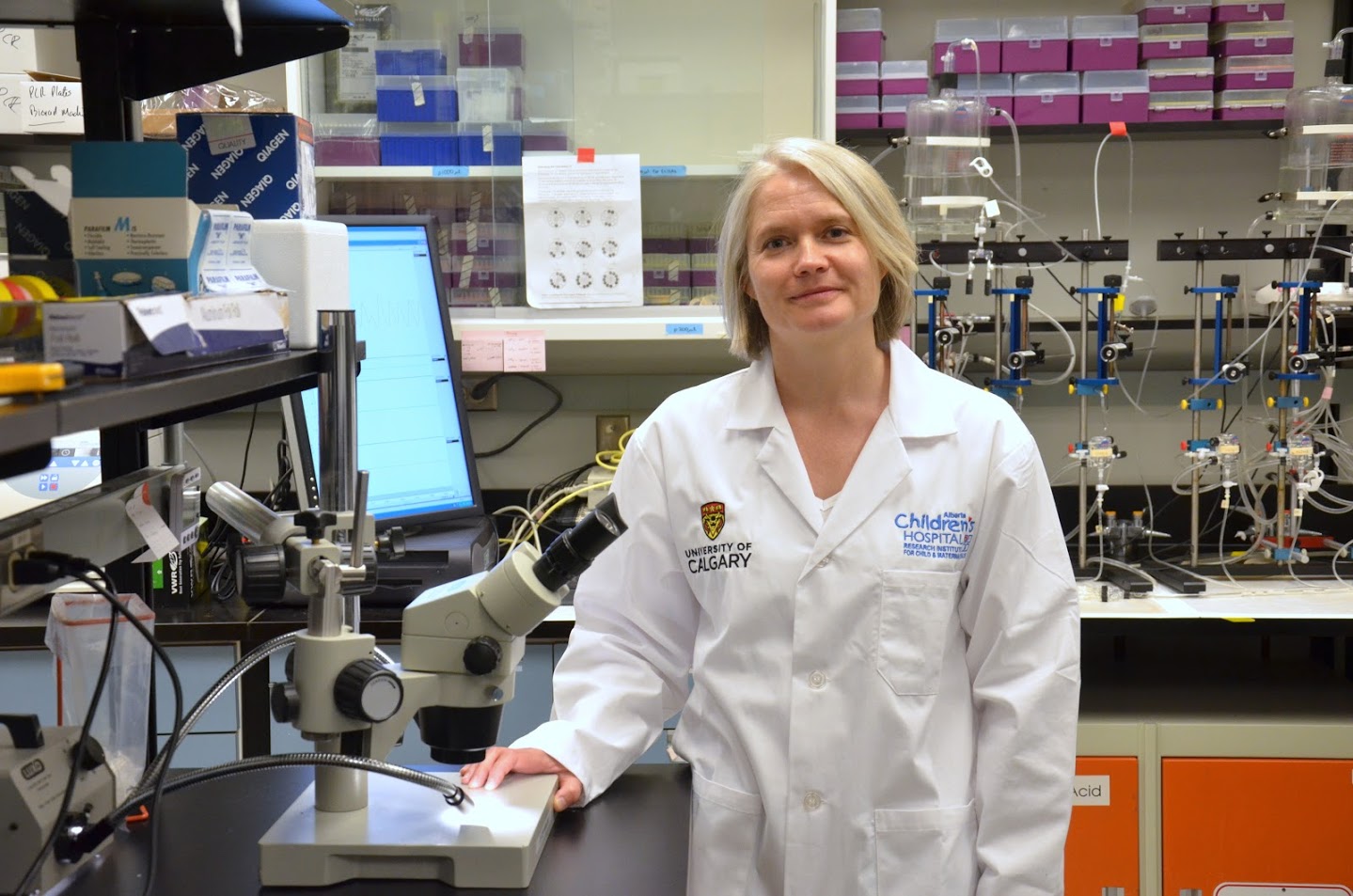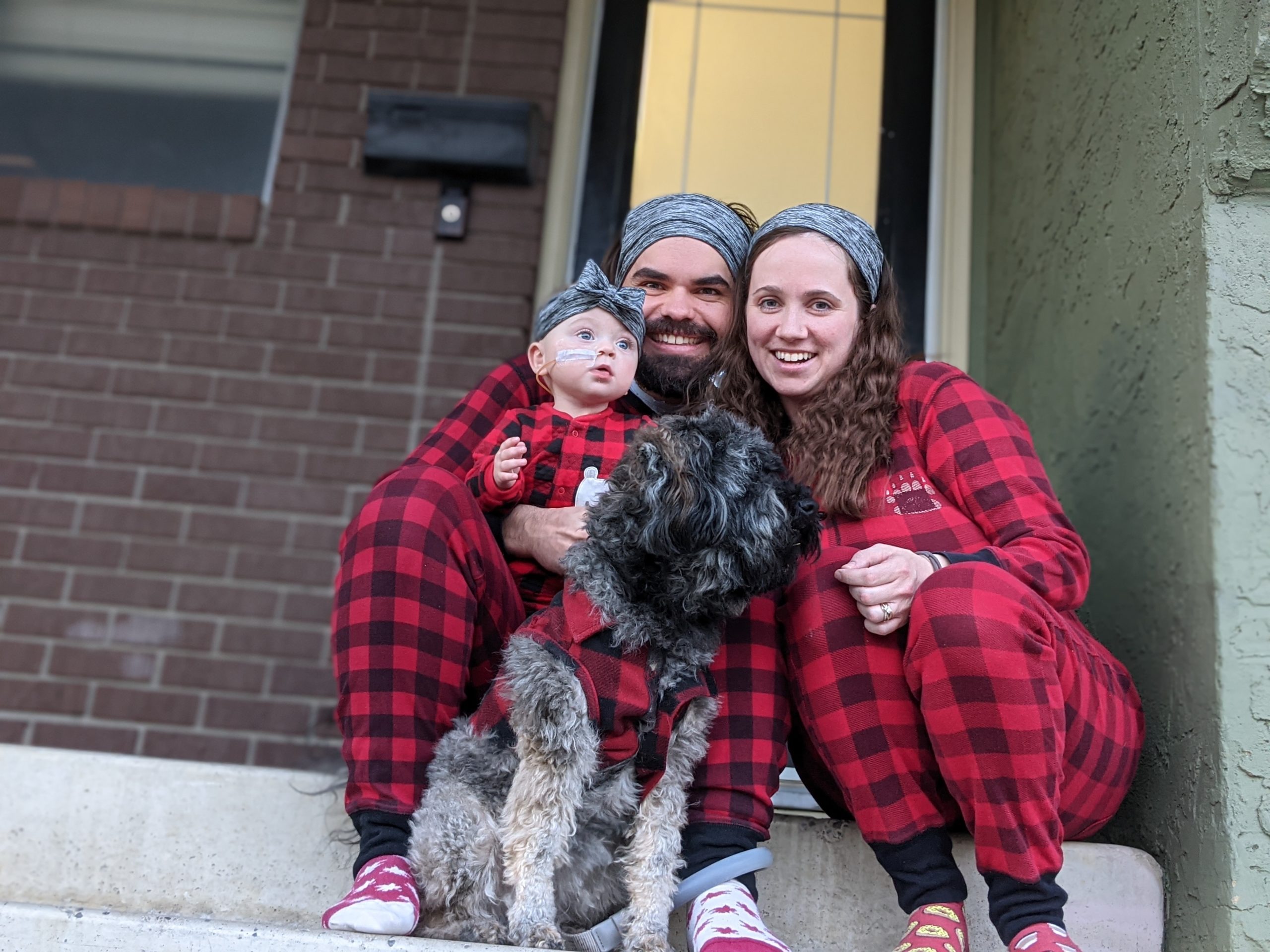May 5, 2021
Scientists Help Predict and Prevent Preterm Birth
Largest project of its kind in Canada launches in Calgary
Alberta has reached such a critical point in preterm births that more than 40 scientists and clinical researchers have launched an unprecedented initiative to find tangible solutions for families. Funded by $5 million in community donations through the Alberta Children’s Hospital Foundation and Calgary Health Foundation, the team aims to increase global knowledge and provide immediate real world health benefits to expectant mothers and newborn babies in our community.
“At nine percent, our province has one of the highest preterm birth rates in the country,” says Dr. Donna Slater, child health and wellness researcher from the Alberta Children’s Hospital Research Institute at the University of Calgary. “That means babies in our province are at higher risk of complications that contribute to impaired brain development, physical disability and neonatal death. For babies who survive, the effects of preterm birth can last a lifetime and change the entire course of their future.”
“Our baby Gianna was born four months early, weighing just one pound, six ounces,“ says Molly Wilding. “She was so incredibly tiny, we were scared out of our minds for our daughter’s life. Although we received amazing care for 149 days in NICU, we would not wish the experience on anyone.”
Recognizing the urgent need to address this serious health risk for families, the Alberta Children’s Hospital Foundation and Calgary Health Foundation have joined forces in rallying the community to help fund this initiative as quickly as possible. This research investment is part of the Calgary Health Foundation’s Newborns Need campaign a $152 million commitment to advance maternal and newborn care in southern Alberta.
“We are grateful that years of generous community support have helped our city build a critical mass of internationally acclaimed leaders in the field ready to solve this issue for families.” – Saifa Koonar, President and CEO, Alberta Children’s Hospital Foundation
“Calgary is uniquely positioned to provide crucial leadership in reducing the risks, incidence and long-term effects of preterm birth for families here and around the world,” says Saifa Koonar, President and CEO of the Alberta Children’s Hospital Foundation. “We are grateful that years of generous community support have helped our city build a critical mass of internationally acclaimed leaders in the field ready to solve this issue for families.”
“This initiative is bringing together local biomedical scientists, doctors, nurses, psychologists, imaging specialists and epidemiologists to give every newborn a fighting chance,” says Mike Meldrum, President and CEO of the Calgary Health Foundation. “With experts collaborating from the lab to the clinic and into our community, southern Alberta families will become the first to benefit from breakthroughs in preterm birth interventions.”
In the first phase of the initiative now underway, scientists are working to develop a blood test for rapid diagnosis of women at risk of delivering preterm. They will also use the power of advanced machine learning to generate personalized risk scores for pregnant women, enabling health care professionals to anticipate preterm births and provide care strategies tailored for individual families.

Dr. Donna Slater and her team are developing a simple blood test to rapidly identify expectant mothers at risk of delivering preterm.
“By developing simple, cost-effective tools that families can access in the community, we have the potential to significantly shift care delivery and services for expectant mothers,” says Dr. Slater. “Ultimately, we want to help more moms extend their pregnancies and welcome healthier babies into their families.”

Gianna’s parents, Molly and Patrick, are grateful to donors for investing in preterm birth prevention and enhanced neonatal intensive care.
“Gianna’s unexpected, early birth was a complete shock to us. I was a healthy woman with no known warning signs during pregnancy, why was this happening?”, Molly explains. “This important research will help to identify families, like ours, who are at risk for preterm births, allowing for earlier interventions and better outcomes.”
Fast Facts
Who? A team of UCalgary scientists and care providers will be inviting 4,000 expectant mothers from Calgary and southern Alberta to participate in research that will take place throughout their pregnancy and up to one year after they have delivered their babies. Fathers and partners will also be encouraged to take part.
Why? Of the more than 17,250 babies born in Calgary each year, about 1,550 are born preterm. Over 1,200 require specialized care within a NICU. In addition to the strain on families, the estimated annual health care costs associated with caring for preterm infants in Canada is $587.1 million.
What? The study will analyze biological samples, questionnaires about moms and their infants, and reviews of their medical records at predetermined time points.
When? Researchers have begun the first phase of their work and plan to enroll a larger number of participants as early as this summer.
Where? The study will be offered through AHS Calgary ultrasound clinics, outpatient obstetric clinics, obstetrical triage, and general advertising in the community.



